
Are Peugeot 208 Reliable? The Complete Reliability Breakdown for Every Generation
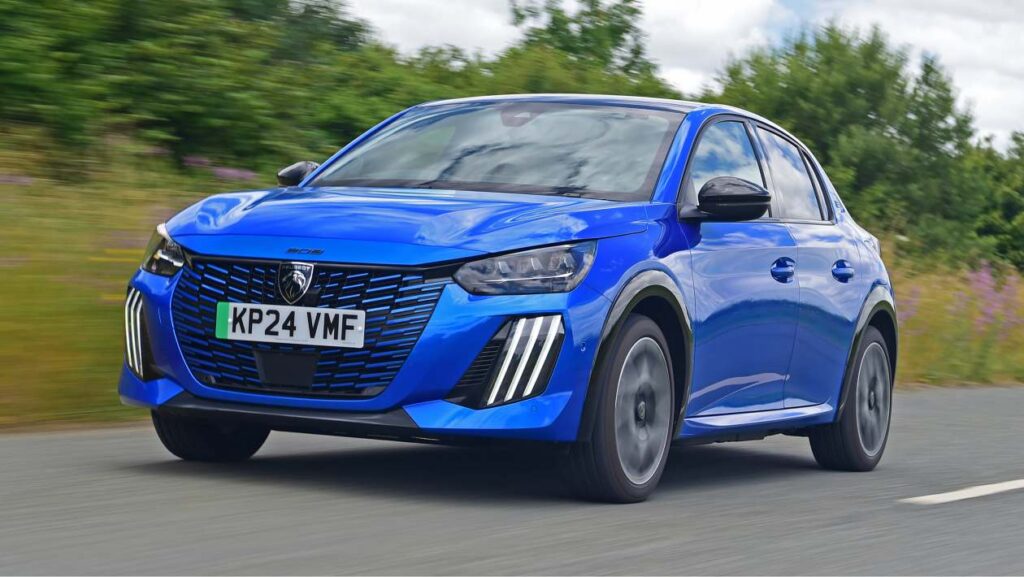
If there’s one question every prospective owner eventually asks, it’s this: Are Peugeot 208 models genuinely reliable, or do they just look good doing it?
We’ve driven them, researched them, inspected them, and listened to hundreds of owners — and today, we’re unpacking everything. This is the ultimate, honest, human-written reliability guide for the Peugeot 208.
We’ll explore real-world issues, generational differences, engine-specific dependability, maintenance insights, long-term ownership costs, and what you can expect from a used 208. Think of this as reliability explained in plain English, without the fluff, but with all the nuance the 208 deserves.
- Understanding Peugeot 208 Reliability at a Glance
- How Reliability Varies by Generation
- Reliability by Engine Type
- Most Common Peugeot 208 Problems
- How the Peugeot 208 Compares to Competitors
- Owner Satisfaction and Reliability Ratings
- Maintenance: The Deciding Factor in 208 Reliability
- Is the Peugeot 208 Reliable in the Long Run?
- Which Peugeot 208 Models Are the Most Reliable?
- Signs a Used Peugeot 208 Is a Good Buy
- When the Peugeot 208 Is Not a Good Fit
- Why the Peugeot 208 Has Become More Reliable Over Time
- Should You Buy a Peugeot 208? Our Final Verdict
- Conclusion
- FAQs
Understanding Peugeot 208 Reliability at a Glance
Before we dissect each component, here’s the truth we’ve learned from years of observing this beloved supermini:
- The Peugeot 208 is generally above average in reliability.
- Newer models (2019+) are significantly more dependable than early ones.
- Petrol engines tend to be more reliable than early diesel and PureTech turbo engines.
- Electric e-208 models are shaping up to be very dependable due to fewer mechanical parts.
But the whole picture is far more interesting — so let’s dig deeper.
How Reliability Varies by Generation
First Generation Peugeot 208 (2012–2019)
The original 208 arrived to replace the 207 — and it did so with charm, lighter construction, and more modern tech. Reliability, however, depends heavily on engine type and model year.
Strengths
- Simple, lightweight chassis
- Strong, smooth ride quality
- Improved electronics vs. 207
- Lower running costs
Common Issues
- Early PureTech timing belt degradation
- Electrical gremlins (touchscreen freezes, sensors)
- Clutch wear on 1.4/1.6 petrols
- Diesel DPF clogging for urban drivers
This generation is reliable enough, but the devil is in the details — especially when it comes to PureTech engines (more on these later).
Second Generation Peugeot 208 (2019–Present)
This is where the 208 transitions from “good” to “genuinely impressive.”
Peugeot redesigned the model with higher-quality materials, stronger electronics, and a more cohesive engine lineup. The reliability jump is substantial.
Strengths
- Far better interior materials
- More stable electronics
- Improved timing belts across PureTech engines
- Very reliable electric variant (e-208)
Potential Issues
- Some reports of 8-speed automatic hesitation
- Cosmetic trim rattles on earlier builds
- Rare software glitches
Overall, the second-gen 208 stands as one of the most reliable French hatchbacks ever produced.
Reliability by Engine Type
1.2 PureTech Engines (NA & Turbocharged)
Peugeot’s famous PureTech engines are lively, efficient, and award-winning — but early models had a notorious flaw: timing belt degradation due to oil immersion.
Early PureTech Issues (2014–2017)
- Belt particles clogging the oil pump
- Check engine lights
- Rough idling
- Risk of severe engine damage if ignored
Post-2018 Improvements
Peugeot redesigned the belt material, significantly improving long-term reliability.
Verdict:
From 2018 onward, PureTech engines in the 208 are much more reliable, especially with regular maintenance.
1.6 BlueHDi Diesel Engines
Diesel 208s are extremely fuel-efficient and capable of high mileage — but they require proper driving conditions.
Pros
- 65–80 mpg real-world
- Strong longevity
- Solid once maintained properly
Cons
- DPF clogging for short-trip drivers
- EGR valve carbon buildup
- AdBlue sensor failures on some models
Verdict:
Great for motorway drivers — less ideal for city owners.
Electric e-208 (2020–Present)
Here’s where the 208 shines brightest.
You may be interested in reading Are Peugeot 2008 Reliable? The Complete Real-World Reliability Guide
Are Peugeot 2008 Reliable? The Complete Real-World Reliability GuideWith nearly no mechanical complexity and a proven motor/battery system shared with Opel and Citroën EVs, the e-208 is one of the most reliable small EVs in Europe.
Why the e-208 Is Considered Highly Reliable
- No timing belts
- No oil changes
- No DPF
- Few moving parts
- Strong battery reliability data
Minor software hiccups can appear, but updates usually fix them.
Verdict:
Arguably the most reliable version of the entire 208 lineup.
Most Common Peugeot 208 Problems
Let’s address the issues owners mention most frequently — because reliability isn’t just about breaking down, it’s about the little annoyances too.
Mechanical Issues
- Timing belt wear on early PureTech engines
- Clutch judder on older petrol models
- Oil consumption on high-mileage 1.6 HDi engines
Electrical Problems
- Touchscreen freezes or black screens
- Parking sensor malfunctions
- Keyless entry glitches
- Intermittent dashboard warning lights
Body & Interior Issues
- Window regulator failures
- Peeling interior trims (first gen)
- Rattles from doors and dashboard
Drivetrain & Transmission
- 5-speed manual notchy shifts on older units
- Aisin automatic gear hesitation (rare)
None of these are deal-breakers, but they show where the 208’s quirks can surface.
How the Peugeot 208 Compares to Competitors
Vs. Ford Fiesta
- Fiesta has more robust engines long-term
- 208 has better tech and comfort
- Reliability is similar, but new-gen 208 edges ahead
Vs. Renault Clio
- Clio diesel engines last longer
- 208 has stronger interior quality and design
- Modern 208 reliability is generally superior
Vs. VW Polo
- Polo is more consistent
- 208 is cheaper to maintain
- 208 PureTech engines (post-2018) rival Polo stability
Bottom Line
The newer Peugeot 208 stands shoulder-to-shoulder with the best in class.
Owner Satisfaction and Reliability Ratings
Consumer Surveys
Across Europe, owner surveys place the 208 between “Above Average” and “Excellent” depending on the model year.
Many owners highlight:
- Low running costs
- Strong day-to-day dependability
- Comfortable ride
- Few major failures
Long-Term Reliability
The 208 ages gracefully.
Well-maintained units often exceed 150,000–200,000 km with minimal trouble.
Maintenance: The Deciding Factor in 208 Reliability
Even the best car falls apart without maintenance — especially modern turbo engines. Here’s what keeps the Peugeot 208 bulletproof.
Essential Maintenance Tips
- Change oil every 10,000–12,000 km (not 20,000 km)
- Inspect the timing belt yearly (PureTech engines)
- Use quality oil (0W-30 or 5W-30 depending on engine)
- Clean intake valves on high-mileage PureTech engines
- Keep software updated
- Avoid short urban trips for diesel models
Affordable Parts & Repairs
The 208 is inexpensive to maintain:
- Belts and pulleys: low cost
- Brakes: cheap
- Sensors: widely available
- Service intervals: reasonable
Owning one doesn’t break the bank — and that’s another reason the 208 scores well.
Is the Peugeot 208 Reliable in the Long Run?
Let’s answer the core question directly:
Short Answer:
Yes — the Peugeot 208 is reliable, especially second-generation petrol and electric models.
More Nuanced Answer:
- Early PureTech models need belt attention
- Diesels are reliable with proper driving cycles
- The new 208 (2019+) is one of the most dependable small cars on the market
- The e-208 is exceptionally reliable
Reliability depends on choosing the right engine for your driving style and sticking to maintenance schedules.
You may be interested in reading Are Peugeot 2008 Reliable? The Complete Real-World Reliability Guide
Are Peugeot 2008 Reliable? The Complete Real-World Reliability Guide Is Peugeot 2008 Bigger Than 3008? A Full Comparison of Size, Space & Everyday Usability
Is Peugeot 2008 Bigger Than 3008? A Full Comparison of Size, Space & Everyday UsabilityWhich Peugeot 208 Models Are the Most Reliable?
Most Reliable Overall
- 2020+ Peugeot e-208
- 2019+ 1.2 PureTech (revised belt)
- 2016–2019 1.6 BlueHDi
Most Reliable Used Budget Pick
- 2015–2017 1.2 PureTech (maintained)
Models to Approach with Caution
- 2014–2016 PureTech engines with original belts
- Short-trip diesel owners (DPF issues)
Signs a Used Peugeot 208 Is a Good Buy
When inspecting a used 208, look for these green flags:
- Full service history
- Timing belt replaced or inspected
- Smooth engine idle
- No warning lights
- Clear digital display (no glitches)
- Even tyre wear
- Smooth shifting (manual/auto)
- Working air conditioning
These clues tell you if the previous owner treated the car well.
When the Peugeot 208 Is Not a Good Fit
The 208 might not be ideal if:
- You drive only very short distances (diesel issues)
- You neglect servicing (PureTech is sensitive)
- You want a very stiff, sporty ride
- You expect German-level interior longevity on early models
But for the vast majority of drivers, the 208 fits beautifully.
Why the Peugeot 208 Has Become More Reliable Over Time
Better Engineering
Peugeot invested heavily in refining PureTech engines and electrification, eliminating many early issues.
Higher-Quality Electronics
Major upgrades in software stability and connectivity reduced system crashes and sensor failures.
Simplification of Components
Removing complexity — especially in EV models — directly improved reliability.
Peugeot learned, evolved, and improved. The result? A modern 208 that feels like the most mature supermini they’ve ever produced.
Should You Buy a Peugeot 208? Our Final Verdict
If reliability is your top priority, here’s our collective conclusion:
- Yes, buy a 2019+ Peugeot 208 without hesitation.
- The e-208 is one of the most reliable small EVs today.
- Earlier models can still be excellent — just check timing belts and electrics.
The Peugeot 208 combines charm, efficiency, modern tech, and solid dependability in a way few superminis manage. For most drivers, it’s a genuinely great choice.
Conclusion
The Peugeot 208’s reliability story is one of evolution. Early models had quirks, but consistent improvements transformed it into a dependable, well-rounded, modern hatchback. Whether you choose petrol, diesel, or electric, a well-maintained 208 will serve you faithfully.
And that, in our view, is the mark of a truly reliable car.
FAQs
1. Is the Peugeot 208 considered a reliable car?
Yes — especially models from 2019 onward and all e-208 variants.
2. Are PureTech engines reliable?
Yes, with the caveat that early (2014–2017) timing belts need inspection.
3. Is the e-208 more reliable than petrol versions?
Absolutely. Fewer moving parts mean fewer failures.
You may be interested in reading Are Peugeot 2008 Reliable? The Complete Real-World Reliability Guide
Are Peugeot 2008 Reliable? The Complete Real-World Reliability Guide Is Peugeot 2008 Bigger Than 3008? A Full Comparison of Size, Space & Everyday Usability
Is Peugeot 2008 Bigger Than 3008? A Full Comparison of Size, Space & Everyday Usability Is Peugeot 2008 a Good Family Car? The Complete 2025 Guide for Real Families
Is Peugeot 2008 a Good Family Car? The Complete 2025 Guide for Real Families4. Are Peugeot 208 diesel models good long-term?
Yes, for motorway drivers. Avoid them if you do only short urban trips.
5. Are maintenance costs for the 208 high?
No. They’re among the lowest in the supermini segment.
If you want to know other articles similar to Are Peugeot 208 Reliable? The Complete Reliability Breakdown for Every Generation you can visit the category Blog.
Leave a Reply


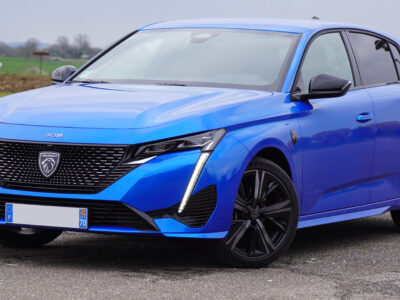
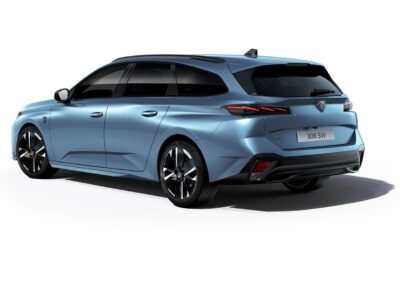
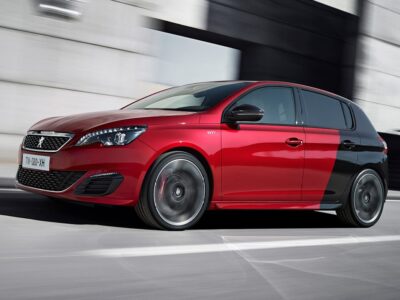
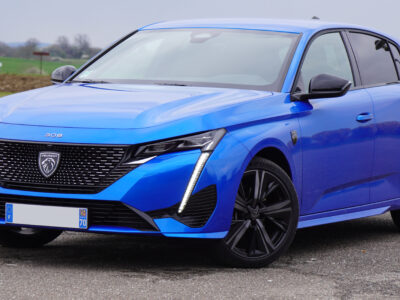
More content of your interest